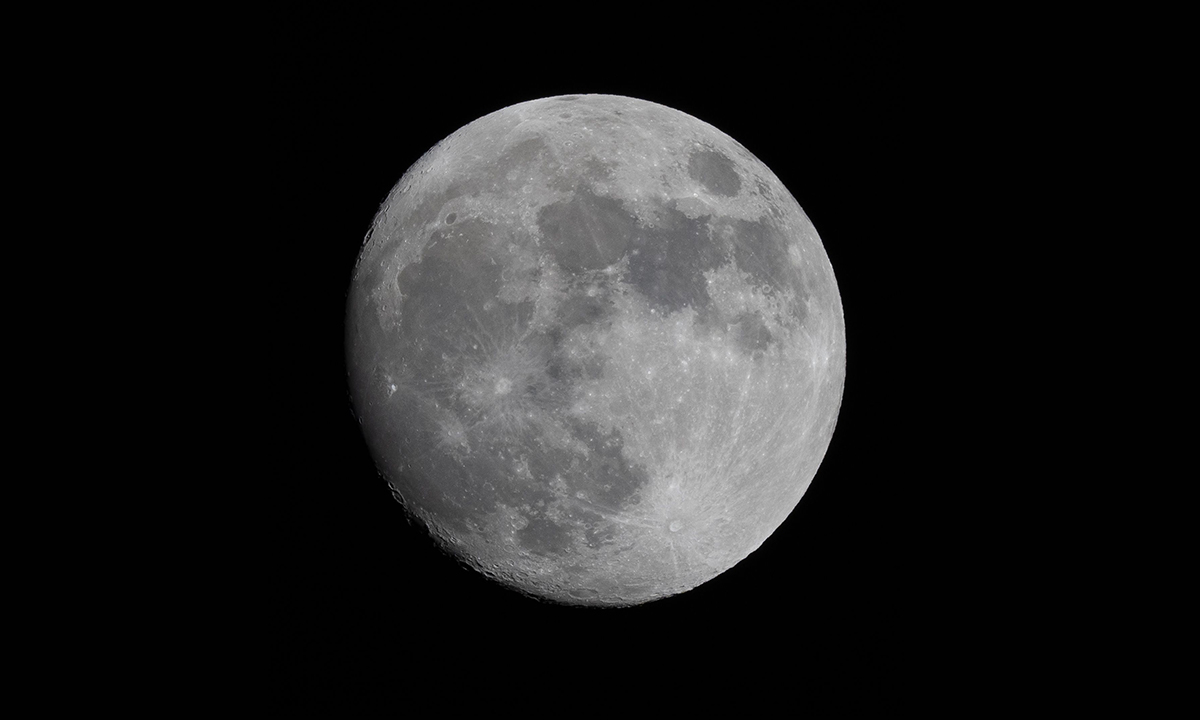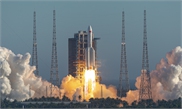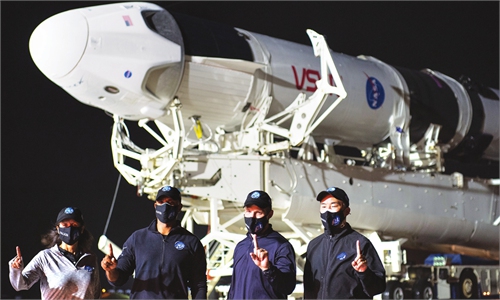
Moon Photo:Chen Xiao
Chinese analysts said that NASA's Artemis program, which includes an ambitious plan to send the first woman and the next man to the moon by 2024, is facing an almost inevitable delay.
Space analysts from China cited the probable shit of priorities under the new Biden administration in the space sector, and the recent failed test of the US Space Launch System (SLS) rocket, which is a key part of the Artemis program.
NASA conducted a test on Saturday of the core stage for the agency's SLS rocket. The team successfully completed the countdown and ignited the engines, but the engines shut down a little more than one minute into the test.
According to a report on NASA's Top Management and Performance Challenges issued on November 12, 2020, "landing the first woman and the next man on the moon by 2024," was listed as Challenge 1, at the top of the chart.
According to NASA, the Artemis mission's first launch will be Artemis I, an uncrewed test flight lasting approximately 22 to 25 days that will orbit the Moon before returning to Earth. Originally scheduled for 2020, the Artemis I launch has been postponed until late 2021. Artemis II, a crewed test flight currently scheduled for launch in 2023, will follow a similar trajectory to Artemis I, while Artemis III aims to land crew on the Moon by late 2024.
"The Artemis program will be the most affected space program following the change of US presidency," China Space News, a Beijing-based space media firm, reported recently, citing analysts.
"The hasty Artemis program has been a political vanity project since its birth during Trump's days, as it lacks specific scientific goals and technological readiness," Song Zhongping, a space analyst and TV commentator, told the Global Times on Thursday.
President Biden's plans for NASA and America's space program are still unclear, but many believe the American space agency would shift its priorities toward the climate change domain, in a marked departure from previous agenda pushed by the Trump administration.
The Biden campaign made little mention of its space priorities, apart from a few statements made during the Crew Dragon Demo 2 launch on May 30, 2020, the first launch of NASA astronauts from American soil since 2011. Specifically, Biden wrote on his website: "As president, I look forward to leading a bold space program that will continue to send astronaut heroes to expand our exploration and scientific frontiers through investments in research and technology to help millions of people here on Earth."
Tackling the COVID-19 pandemic, economic recovery, racial equality and climate change are considered to be the four top priorities for the Biden administration. And Biden is likely to shift NASA's priorities toward the climate change category, observers noted.
Lori Garver, the NASA deputy administrator during the Obama administration, was a key speaker at the SpaceVision 2020 convention on November 7 and 8, 2020. "Managing the Earth's ability to sustain human life and biodiversity will likely, in my view, dominate a civil space agenda for a Biden-Harris administration," she said.
Such a priority shift would mean that the budget for NASA's space exploration program would shrink significantly, Song noted, and he also predicted that the more feasible timeline for NASA's crewed landing on the moon would be around 2028.
Funding for the Human Landing System (HLS) which supports development of commercial landers to carry astronauts to and from the lunar surface is another major area of uncertainty for NASA's program to achieve the 2024 crewed moon landing goal.
NASA requested $3.2 billion for the program in its 2021 fiscal year budget proposal. However, a House bill passed in July 2020 provided only about $600 million, US media reports said.



